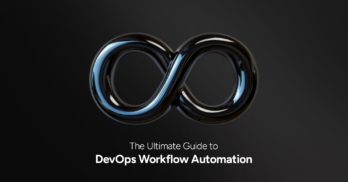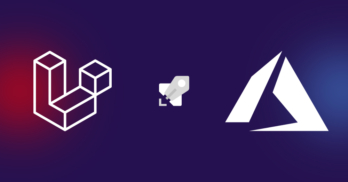Greetings! I'm Aneesh Sreedharan, CEO of 2Hats Logic Solutions. At 2Hats Logic Solutions, we are dedicated to providing technical expertise and resolving your concerns in the world of technology. Our blog page serves as a resource where we share insights and experiences, offering valuable perspectives on your queries.

Have you ever had to wonder if your software development is stuck in slow motion? It also takes an eternity to introduce new features, and every time a bug is squashed, another one is lurking right behind it. Well, if you are creating a Software as a Service (SaaS) product, this could be quite painful. After all, in today’s world, a satisfied client has the right to get constant updates and immediate solutions.
It is here that DevOps comes into the picture. Consider a universe of development and operation where your teams provide releases and improvements as frequently as time does. It is for this reason that benefits such as fewer bugs, faster solutions, and happier customers can be associated with DevOps when it comes to SaaS.
This guide will explain how DevOps plays an important role in boosting the efficiency of SaaS product development. In this article, we will describe how both processes work together to create an effective development plan and help you focus on the things that are important to developing a product that customers would like.
How DevOps Boosts Efficiency in SaaS Product Development
DevOps offers a robust methodology to significantly improve your SaaS development process. Take a look at its key benefits:
Accelerated Time-to-Market: DevOps optimizes development by cutting out any unnecessary steps and having integrated and frequently delivered features, also known as CI/CD. This leads to quicker delivery of new features and innovation calibration, thus enabling you to be up to par.
Automated Efficiency: Complex operations such as code deployment and configuration management could prove redundant and may lead to the formation of bottlenecks. DevOps automates these processes, providing greater control, efficiency, and savings of the developer’s time for critical and worthwhile activities.
Continuous Improvement with CI/CD: CI-CD is the central part of DevOps, which implies the integration of code changes and their deployment in an automated manner. The regular traffic makes it easier to detect and fix bugs thus the SaaS product is more effective and quality-oriented.
Enhanced Quality Assurance: DevOps promotes quality by adopting continuous testing within the development area, meaning testing is integrated throughout development. This ensures that errors are detected before reaching the final stages and as such, there is high-quality production.
Proactive Monitoring and Feedback: For instance, DevOps is a model that focuses on the ongoing monitoring of the SaaS application. This assists in promoting the concern and rectification of possible problems that may have an impact on the client services; hence making it a more stable dependable product.
Breaking Down Silos for Collaboration: Usually, the development and operations teams were separated. DevOps, which means developers and operations. This integration fosters cohesion since there are no blocks and everyone is responsible for the product, and its delivery. This aids in the richness of communication as the advancement of development.
Effortless Scalability: As your SaaS product experiences growth, infrastructure requirements will change as well. It is even more natural for DevOps to incorporate the use of the cloud and Infrastructure as Code (IaC). What this means is that one can expand the infrastructure required, or contract it to the necessary provisions at other times, at a reasonable cost.
Cost Optimization: Simplified testing, faster and continuous development, and delivery, along with less wastage of resources, lead to substantial cost savings in DevOps. These savings can in turn be accumulated or invested systematically into product development making it possible to form effective cycles of saving-investment.
Challenges in Implementing DevOps for SaaS
Implementing DevOps in a SaaS environment presents unique challenges that organizations must address to reap its full benefits. These hurdles often stem from cultural, technological, and organizational factors.
Cultural Shift: Transitioning from traditional siloed development and operations teams to a collaborative DevOps culture can be challenging. Overcoming resistance to change and fostering a shared ownership mentality are crucial.
Tool Integration: When it comes to DevOps selecting and integrating the tools can be complex. Ensuring seamless communication and data flow between different tools is essential for efficient workflows.
Security: Protecting sensitive customer data in a SaaS environment requires robust security measures. Balancing security with agility and speed can be a delicate task.
Monitoring and Logging: Tracking system performance and identifying issues in a complex SaaS architecture can be overwhelming. Effective monitoring and logging solutions should be implemented and it is vital.
Legacy Systems: Integrating legacy systems with modern DevOps practices can be complex and time-consuming. Modernize legacy systems or find an effective integration strategy.
Conclusion
In conclusion, integrating DevOps into your SaaS development can transform your process, making it more efficient, reliable, and scalable. By fostering collaboration, automating repetitive tasks, and emphasizing continuous improvement, DevOps significantly accelerates time-to-market and enhances quality assurance. It also facilitates proactive monitoring, ensuring that potential issues are addressed promptly, thereby maintaining high customer satisfaction. Embracing DevOps not only optimizes resource utilization but also positions your SaaS product for sustained growth and innovation. By addressing these challenges strategically, your organization can achieve a seamless transition to a DevOps culture, ultimately leading to cost optimization and improved operational efficiency. Utilizing DevOps as a service can further streamline this integration, providing expert guidance and tailored solutions to meet your specific needs.

Related Articles





